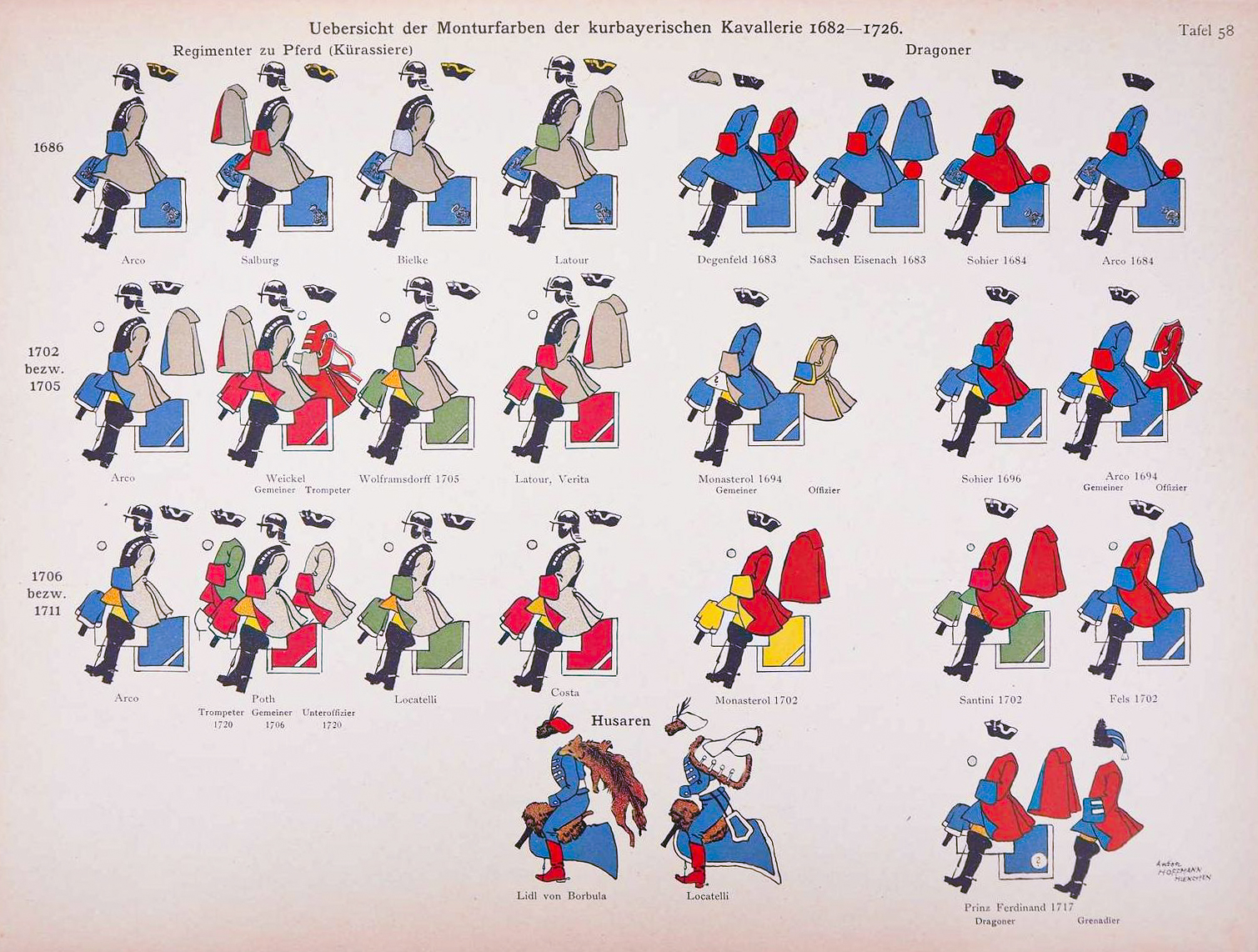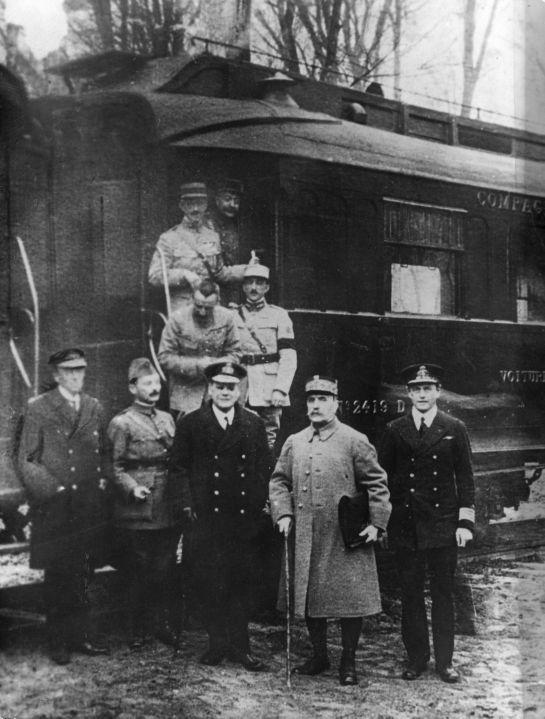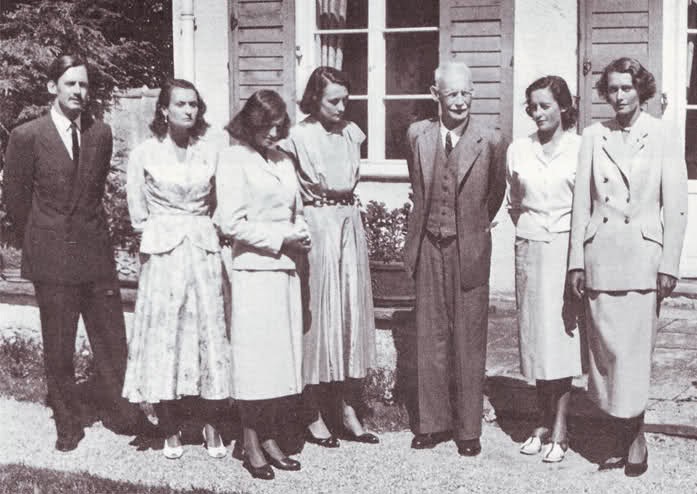|
Anif Declaration
The Anif declaration () was issued by Ludwig III of Bavaria, Ludwig III, Kingdom of Bavaria, King of Bavaria, on 12 November 1918 at Anif Palace, Austria. It was a declaration in which the monarch relieved all civil servants and military personnel from their oath of loyalty to him. Although he never used the word "abdication," the new socialist government of Kurt Eisner deemed it as such and declared Ludwig deposed. This effectively ended the 738-year dynasty of the House of Wittelsbach in Bavaria. Historical background With the imminent collapse of the German Empire at the end of the First World War in November 1918, the Kingdom of Bavaria, like all other states of the Empire, was in a state of transition from a monarchy to a republic. Max von Speidel, Minister of War in the Bavarian government, under orders from Kurt Eisner, tried to persuade King Ludwig on 10 November (the day before the Armistice with Germany (Compiègne), Armistice) to issue a declaration in which he would ... [...More Info...] [...Related Items...] OR: [Wikipedia] [Google] [Baidu] |
König Ludwig III
König (; ) is the German language, German word for "king". In German and other languages applying the Diaeresis (diacritic), umlaut, the transliterations ''Koenig'' and ''Kœnig'', when referring to a surname, also occur. As a surname in English, the use of ''Koenig'' is usual, and sometimes also ''Konig''. Notable people with the name include: People A to F *Adam Koenig (born 1971), American politician *Adrianus König (1867–1944), Dutch politician *Aislinn Konig (born 1998), Canadian basketball player *Alexander Koenig (1858–1940), German naturalist *Alexander König (born 1966), German skater *Alfons König (1898–1944), Wehrmacht officer during World War II *Alfred König (1913–1987), Austrian-Turkish Olympic sprinter *Andrew Koenig (1968–2010), American actor *Andrew Koenig (politician) (born 1982), American politician in Missouri *Andrew Koenig (programmer), American computer scientist and author *Anna Leonore König (1771–1854), Swedish singer *Arthur König (18 ... [...More Info...] [...Related Items...] OR: [Wikipedia] [Google] [Baidu] |
Bavarian Army
The Bavarian Army () was the army of the Electorate of Bavaria, Electorate (1682–1806) and then Kingdom of Bavaria, Kingdom (1806–1918) of Bavaria. It existed from 1682 as the standing army of Bavaria until the merger of the military sovereignty () of Bavaria into that of the German State in 1919. The Bavarian Army was never comparable to the armies of the Great Powers of the 19th century, but it did provide the Wittelsbach dynasty with sufficient scope of action, in the context of effective alliance politics, to transform Bavaria from a territorially-disjointed small state to the second-largest state of the German Empire after Prussia. History 1682–1790: From the first standing army to the Napoleonic Wars The of 1681 obliged Bavaria to provide troops for the Army of the Holy Roman Empire, Imperial army. Moreover, the establishment of a standing army was increasingly seen as a sign of nation state, nation-statehood. At a field camp in Schwabing on 12 October 1682, the ... [...More Info...] [...Related Items...] OR: [Wikipedia] [Google] [Baidu] |
1918 In Germany
Events in the year 1918 in Germany. Incumbents National level Head of State * Kaiser – Wilhelm II, abdicated 9 November * Republic (from 9 November) – vacant Head of Government * Chancellor (Imperial) - Georg von Hertling to 30 September, then from 3 October Prince Maximilian of Baden to 9 November * Republic – from 9 November Friedrich Ebert, ''"Head of Government"'' State level Kingdoms * King of Bavaria – Ludwig III abdicated 7 November * King of Prussia – Wilhelm II, abdicated 9 November * King of Saxony – Frederick Augustus III, abdicated 13 November * King of Württemberg – William II, abdicated 30 November Grand Duchies * Grand Duke of Baden – Frederick II, abdicated 22 November * Grand Duke of Hesse – Ernest Louis, abdicated 9 November * Grand Duke of Mecklenburg-Schwerin - Frederick Francis IV, abdicated 14 November * Grand Duke of Mecklenburg-Strelitz – Adolphus Frederick VI, died 23 November, thereafter vacant * Grand Duke of ... [...More Info...] [...Related Items...] OR: [Wikipedia] [Google] [Baidu] |
Monarchy In Germany
This is a list of monarchs who ruled over East Francia, and the Kingdom of Germany (), from the division of the Frankish Empire in 843 and the collapse of the Holy Roman Empire in 1806 until the collapse of the German Empire in 1918: East Francia (843–962) Carolingian dynasty Conradine dynasty Ottonian dynasty Holy Roman Empire (962–1806) The title "King of the Romans", used in the Holy Roman Empire, was, from the coronation of Henry II, considered equivalent to King of Germany. A king was chosen by the German electors and would then proceed to Rome to be crowned emperor by the pope. Ottonian dynasty (continued) Salian dynasty Supplinburger dynasty Hohenstaufen dynasty Interregnum Changing dynasties Habsburg dynasty Modern Germany (1806–1918) Confederation of the Rhine (1806–1813) German Confederation (1815–1866) North German Confederation (1867–1871) German Empire (1871–1918) Note on titles #The Kingdom of Germany started o ... [...More Info...] [...Related Items...] OR: [Wikipedia] [Google] [Baidu] |
Constituent Assembly
A constituent assembly (also known as a constitutional convention, constitutional congress, or constitutional assembly) is a body assembled for the purpose of drafting or revising a constitution. Members of a constituent assembly may be elected by popular vote, drawn by sortition, appointed, or some combination of these methods. Assemblies are typically considered distinct from a regular legislature, although members of the legislature may compose a significant number or all of its members. As the fundamental document constituting a state, a constitution cannot normally be modified or amended by the state's normal legislative procedures in some jurisdictions; instead a constitutional convention or a constituent assembly, the rules for which are normally laid down in the constitution, must be set up. A constituent assembly is usually set up for its specific purpose, which it carries out in a relatively short time, after which the assembly is dissolved. A constituent assembly is a ... [...More Info...] [...Related Items...] OR: [Wikipedia] [Google] [Baidu] |
Monarchism In Bavaria After 1918
The Bavarian monarchy ended with the declaration of a republic after the Anif declaration by King Ludwig III on 12 November 1918 as a consequence of Germany's defeat in the First World War.Monarchismus – Monarchy, accessed: 1 July 2011 was thereafter particularly strong between 1918 and 1933, when an attempt was made to either make Crown Prince Rupprecht king or general state ... [...More Info...] [...Related Items...] OR: [Wikipedia] [Google] [Baidu] |
Rupprecht, Crown Prince Of Bavaria
Rupprecht, Crown Prince of Bavaria, Duke of Bavaria, Franconia and in Swabia, Count Palatine by the Rhine (''Rupprecht Maria Luitpold Ferdinand''; English: ''Rupert Maria Leopold Ferdinand''; 18 May 1869 – 2 August 1955), was the last heir apparent to the Bavarian throne. During the first half of World War I, he commanded the 6th Army on the Western Front. From August 1916, he commanded Army Group Rupprecht of Bavaria, which occupied the sector of the front opposite the British Expeditionary Force. Childhood Rupprecht was born in Munich, the eldest of the thirteen children of Ludwig III, the last King of Bavaria, and of Archduchess Maria Theresa of Austria-Este, a niece of Duke Francis V of Modena. He was a member of the lineage of both Louis XIV of France and William the Conqueror. As a direct descendant of Henrietta of England, daughter of Charles I of England, he was claimant to the thrones of England, Scotland and Ireland in the Jacobite succession. His early ... [...More Info...] [...Related Items...] OR: [Wikipedia] [Google] [Baidu] |
Historisches Lexikon Bayerns
The Historische Lexikon Bayerns (abbr: ''HLB'') or Historical Lexicon of Bavaria is a specialist, historical lexicon about the History of Bavaria, which has been published as a genuine online publication. It is the first specialised lexicon on the history of the Free State of Bavaria and its various regions. History and development The concept of publishing an online encyclopedia on the history of Bavaria has been worked on since the late 1990s. Work on the HLB began in February 2005, the first articles of the module on the Weimar Republic were published in May 2006. By 2025 the HLB had grown to around 1,400 articles (as of March 2025), including modules on the Late Middle Ages since 2007, the post-1945 period since 2008, the Early Middle Ages since 2017, the Nazi Era and the 19th Century since 2018/2019. The aim of the HLB is to provide comprehensive coverage of all historical eras of Bavaria since prehistory. The HLB was originally part of the Bavarian Regional Library ... [...More Info...] [...Related Items...] OR: [Wikipedia] [Google] [Baidu] |
Hitler Putsch
The Beer Hall Putsch, also known as the Munich Putsch,Dan Moorhouse, ed schoolshistory.org.uk, accessed 2008-05-31.Known in German as the or was a failed coup d'état by Nazi Party leader Adolf Hitler, Erich Ludendorff and other leaders in Munich, Bavaria, on , during the period of the Weimar Republic. Approximately two thousand Nazis marched on the , in the city centre, but were confronted by a police cordon, which resulted in the deaths of 15 Nazis, four police officers, and one bystander. Hitler escaped immediate arrest and was spirited off to safety in the countryside. After two days, he was arrested and charged with treason. The putsch brought Hitler to the attention of the German nation for the first time and generated front-page headlines in newspapers around the world. His arrest was followed by a 24-day trial, which was widely publicised and gave him a platform to express his nationalist sentiments. Hitler was found guilty of treason and sentenced to five years in ... [...More Info...] [...Related Items...] OR: [Wikipedia] [Google] [Baidu] |
Munich
Munich is the capital and most populous city of Bavaria, Germany. As of 30 November 2024, its population was 1,604,384, making it the third-largest city in Germany after Berlin and Hamburg. Munich is the largest city in Germany that is not a state of its own. It ranks as the 11th-largest city in the European Union. The metropolitan area has around 3 million inhabitants, and the broader Munich Metropolitan Region is home to about 6.2 million people. It is the List of EU metropolitan regions by GDP#2021 ranking of top four German metropolitan regions, third largest metropolitan region by GDP in the European Union. Munich is located on the river Isar north of the Alps. It is the seat of the Upper Bavaria, Upper Bavarian administrative region. With 4,500 people per km2, Munich is Germany's most densely populated municipality. It is also the second-largest city in the Bavarian language, Bavarian dialect area after Vienna. The first record of Munich dates to 1158. The city ha ... [...More Info...] [...Related Items...] OR: [Wikipedia] [Google] [Baidu] |
Otto Ritter Von Dandl
Otto Ritter von Dandl (13 May 1868 in Straubing – 20 May 1942) was a Bavarian politician and lawyer who was the last Minister-President of the Kingdom of Bavaria. Life Otto Ritter von Dandl was born in Straubing, Lower Bavaria, in 1868, his parents being Georg Ritter von Dandl and Karoline Weninger. He studied law and graduated in 1890. He entered the Bavarian government service, becoming a judge at the court in Munich. He rose through the ranks quickly, occupying a position in the justice department from 1900. In 1906, von Dandl became an adviser of Prinzregent Luitpold, who ruled Bavaria in his nephew's, King Otto's stead. With the death of Luitpold in 1912, his son Ludwig took up the position as ''Prinzregent'' (''Prince Regent'') of Bavaria and von Dandl became the chief of his cabinet. Ludwig acceded to the throne of Bavaria as Ludwig III in 1913 and bestowed the title of '' Staatsrat'' on von Dandl. In 1917, when Germany's situation had gradually worsened due to ... [...More Info...] [...Related Items...] OR: [Wikipedia] [Google] [Baidu] |







